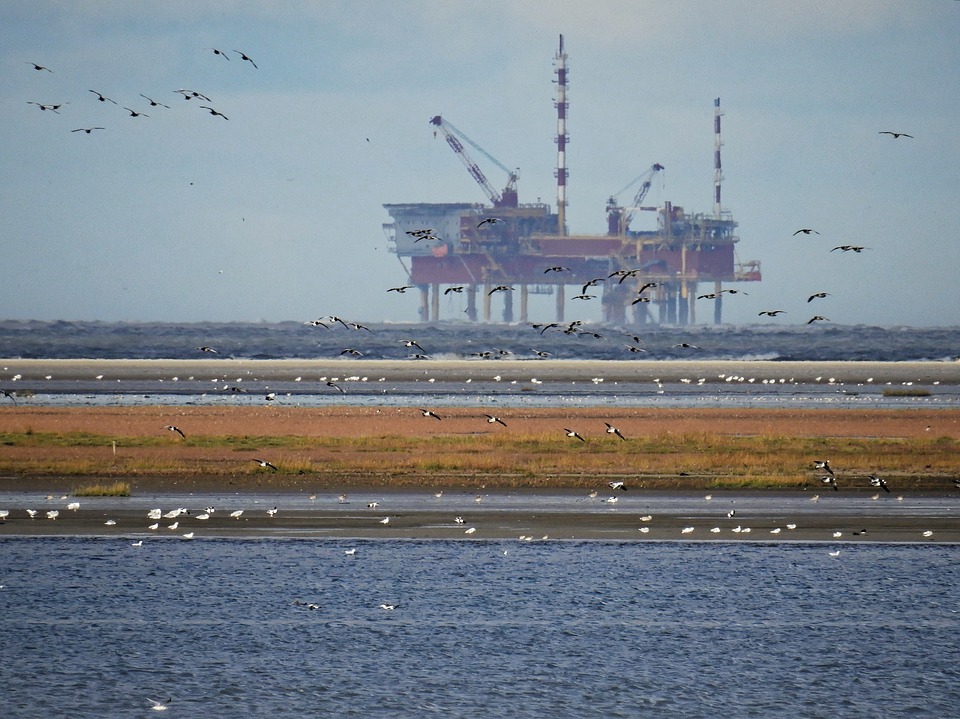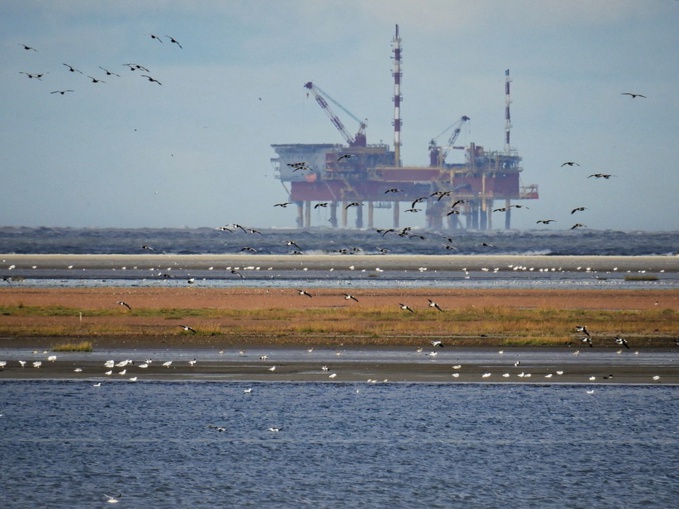In addition, this information again raises a question of financial viability of an independent Scotland. This issue keeps bothering the Scottish National Party (SNP) led by Nicola Sturgeon.
During an unsuccessful referendum campaign in 2014, the SNP pledged to retain tax breaks for decommissioning after gaining of independence, yet subsequent collapse of the oil market made this promise difficult to fulfill. Independent Scotland would certainly insist that the UK should take bulk of the responsibility, as "enrichment at the expense of tax revenues from the North Sea for the past four decades" benefited the general treasury, writes Financial Times.
The Scottish Government stated that their British colleagues "hold key levers of taxation" in the North Sea, adding that marine oil and gas production "still would have a bright future, if industry and government focused on accelerating economic recovery, extraction efficiency and promotion of new investment. "
The gap between public revenue and expenditure in Scotland ranges from 9.5% of GDP. This deficit of more than two times higher than for the UK as a whole.
In 2011-2012, proportion of Scotland's oil revenues from the North Sea was £ 9.6 billion. In 2016, on the contrary, oil revenues amounted to only £ 60 million.
A few days ago, Sturgeon claimed that she is 'not bluffing', and promised to hold a second referendum on independence if Theresa May’s government fails to keep the European single market open for the UK after Brexit. However, tax issues remain the biggest obstacle to win majority support in the struggle for independence.
According to calculations of oil companies, they will need about £ 53 billion at curtailing production in the North Sea starting from this year. The corporations reckon that tax benefits would help them to compensate about half of this amount, says research firm Wood Mackenzie.
"In the coming decades, the North Sea field will transform from asset into major annual expenses," - says an analyst at Wood Mackenzie. The process of closing all fields requires not less than 40 years, but the main part of spending (about 1/5) falls on the next five years. Wood Mackenzie reckons that the Treasury would spend about £ 5 billion on this problem by the end of 2021.
Royal Dutch Shell, the largest petroleum corporation in the UK, is preparing to hold a public consultation on closure of Brent field. In 1970, it was a starting point for development of the mining industry in the North Sea, and even gave its name to famous benchmark grade of oil.
Since production in the region started, oil companies have paid more than £ 330 billion of taxes. Now, they can claim back a portion of that amount – just in time to decommission the operating wells. Such tax incentives have been introduced in order to increase flow of investment, and there has been no problems before. In 2016, however, amount of tax breaks for the first time in history exceeded income from deposits for the same period - largely due to the longstanding low oil prices.
According to official data, deficit for this article would amount to £ 500 million in the current fiscal year. At the same time, officials hope that this sum will be compensated by launch of new deposits in the next five years.
However, future income depends not only on oil prices, but also on companies’ decision to invest in exploration.
Since 1967, the North Sea produced more than 43 billion barrels of oil. The current stocks are estimated at 10-20 billion barrels.
According to the Oil & Gas UK, tax revenue from production will long be exceeding costs of phasing old deposits down. The Treasury’s spokesman said that the agency "is committed to maximize oil and gas production in the UK, providing a fair return to the nation", and is also working with the industry and regulators to find ways to reduce cost of decommissioning the operating wells.
source: ft.com
During an unsuccessful referendum campaign in 2014, the SNP pledged to retain tax breaks for decommissioning after gaining of independence, yet subsequent collapse of the oil market made this promise difficult to fulfill. Independent Scotland would certainly insist that the UK should take bulk of the responsibility, as "enrichment at the expense of tax revenues from the North Sea for the past four decades" benefited the general treasury, writes Financial Times.
The Scottish Government stated that their British colleagues "hold key levers of taxation" in the North Sea, adding that marine oil and gas production "still would have a bright future, if industry and government focused on accelerating economic recovery, extraction efficiency and promotion of new investment. "
The gap between public revenue and expenditure in Scotland ranges from 9.5% of GDP. This deficit of more than two times higher than for the UK as a whole.
In 2011-2012, proportion of Scotland's oil revenues from the North Sea was £ 9.6 billion. In 2016, on the contrary, oil revenues amounted to only £ 60 million.
A few days ago, Sturgeon claimed that she is 'not bluffing', and promised to hold a second referendum on independence if Theresa May’s government fails to keep the European single market open for the UK after Brexit. However, tax issues remain the biggest obstacle to win majority support in the struggle for independence.
According to calculations of oil companies, they will need about £ 53 billion at curtailing production in the North Sea starting from this year. The corporations reckon that tax benefits would help them to compensate about half of this amount, says research firm Wood Mackenzie.
"In the coming decades, the North Sea field will transform from asset into major annual expenses," - says an analyst at Wood Mackenzie. The process of closing all fields requires not less than 40 years, but the main part of spending (about 1/5) falls on the next five years. Wood Mackenzie reckons that the Treasury would spend about £ 5 billion on this problem by the end of 2021.
Royal Dutch Shell, the largest petroleum corporation in the UK, is preparing to hold a public consultation on closure of Brent field. In 1970, it was a starting point for development of the mining industry in the North Sea, and even gave its name to famous benchmark grade of oil.
Since production in the region started, oil companies have paid more than £ 330 billion of taxes. Now, they can claim back a portion of that amount – just in time to decommission the operating wells. Such tax incentives have been introduced in order to increase flow of investment, and there has been no problems before. In 2016, however, amount of tax breaks for the first time in history exceeded income from deposits for the same period - largely due to the longstanding low oil prices.
According to official data, deficit for this article would amount to £ 500 million in the current fiscal year. At the same time, officials hope that this sum will be compensated by launch of new deposits in the next five years.
However, future income depends not only on oil prices, but also on companies’ decision to invest in exploration.
Since 1967, the North Sea produced more than 43 billion barrels of oil. The current stocks are estimated at 10-20 billion barrels.
According to the Oil & Gas UK, tax revenue from production will long be exceeding costs of phasing old deposits down. The Treasury’s spokesman said that the agency "is committed to maximize oil and gas production in the UK, providing a fair return to the nation", and is also working with the industry and regulators to find ways to reduce cost of decommissioning the operating wells.
source: ft.com



















